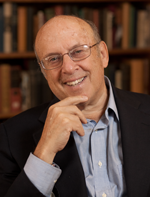
Jeffrey Carduner, Aesthetic Realism consultant, writes:
Great pleasure and education await the reader of “Knowledge—Excited and True.” You’ll learn about the best thing in humanity, in yourself—the desire to know—and also about what in oneself interferes with that best thing. And, as you read Eli Siegel’s powerful discussion of Charles Dickens, you will be experiencing magnificent comprehension of how literature—and art itself—has to do with each of us and what we want for our lives. Knowledge that America as a nation urgently needs is present too in this honest, vibrant issue of The Right of Aesthetic Realism to Be Known.
The commentary by Ellen Reiss begins:
Dear Unknown Friends:
We have been serializing the lecture Imagination Has Emphasis, which Eli Siegel gave in 1971. Throughout it he speaks, greatly, about matters that are fundamental in art but which also have not before been well understood—for instance, character in fiction. He speaks about art definitively, yet with such freshness, vividness, depth, love. And as he does, we feel it has to do with us, our own personal, particular lives. The basis is that principle which he was the critic to discover and express: “All beauty is a making one of opposites, and the making one of opposites is what we are going after in ourselves.” Life and art, literary criticism at its greatest and what we want for our lives, are inseparable in this talk.
Mr. Siegel uses as text G.K. Chesterton’s 1906 book Charles Dickens. And as he comments on Chesterton’s statements, we are in the midst of Mr. Siegel’s own wide, exact, warm seeing of Dickens, about whom he spoke often in his teaching of Aesthetic Realism.
Knowing & Excitement
As a prelude, I’ll speak a little about something ever so consequential that Mr. Siegel explains in this section of his talk. You’ll read the whole passage soon, but I give some of it here:…Read more